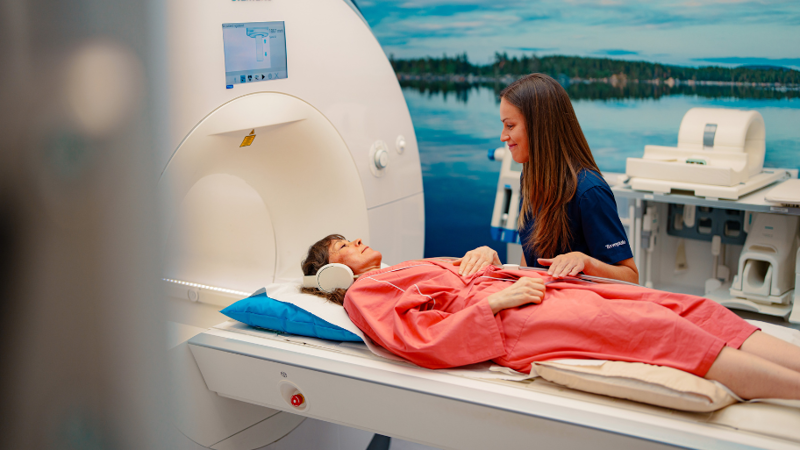Chronic drug addiction during the holidays: how to recognise and address the problem
After the holiday season, many people return to work feeling relaxed, but for some, a long holiday may have triggered a budding addiction. This can make it challenging to break away from substance abuse as everyday life takes its toll. Anita Riipinen, senior occupational health physician at Terveystalo, lists the warning signs that should be discussed with the employee and gives tips on how to talk to them.

Drinking problems are relatively common, with studies showing that up to half of working-age men and a quarter of women drink too much alcohol. As many as 70% of people who are dependent on alcohol are in employment.
– The addicted person is usually good at hiding it, especially in the early stages. It may even seem that work performance increases and things go more smoothly than usual, because people at work are willing to go the extra mile to cover up the addiction," says Riipinen.
Irritability and mood swings, or emotional swings, are present in everyone from time to time, but if, for example, an employee repeatedly gets into conflict situations easily, withdraws or seems unusually tired, it is entirely reasonable to be concerned about the employee's behaviour. Frequent sickness absences linked to weekends and holidays are also a red flag. Changes in behaviour and/or increased absenteeism are early signals of substance dependence.
– Of course, it is not always substance abuse, but these signals can also indicate other health problems or stress related to work or leisure. In any case, it is a good idea to find out as soon as possible after detecting changes," says Riipinen.
The effects of the last amendment to the Alcohol Act on people's health were examined in the report on the ex-post evaluation of the Alcohol Act by the National Institute for Health and Welfare. By liberalising the sale of alcohol in 2018, the ex-post evaluation found that it increased health problems and mortality due to substance abuse. With the recent amendment to the Alcohol Act, which will come into force in June 2024, the risk of an increase in substance abuse is again present, so to avoid a similar development to the previous law change, it is important to raise any concerns at a low threshold.
– Early support is a sign of caring, and so should not be shied away from. Speaking up is part of the culture and safety net of a well-functioning workplace," says Riipinen.
Tips for the supervisors - how do I raise a concern?
- Express your concerns directly and explain, in a constructive spirit, what the issue is.
- Allow a quiet space and enough time for the discussion, and give the employee time to prepare.
- During the conversation, be empathetic, empathise with the other person's feelings and express your willingness to help. Remember to remain calm, as emotions are contagious, and pay attention to non-verbal communication.
- Keep the conversation focused on the future and agree together on a follow-up plan.
- Refer the employee to occupational health so that the addiction does not deepen, causing unnecessary harm to both the employee and the team.
As a first point of contact, you can also make use of an early warning checklist to support the decision to raise the suspected problem. The higher the score on the checklist, the more important it is to address the issue. Nevertheless, even if the score is low, it is always worth raising the suspicion.
Reasd more occupational health articles

Terveystalo's digital services have been awarded the internationally recognized ISO27001 information security certification.
Terveystalo's information security practices, processes, and risk management are in line with international best practices.

Does massage help relieve stress? – Touch restores and calms the body and mind
Stress is not always visible on the outside, but the body does show signs when the strain increases. According to Lassi Ylönen, a trained massage therapist at Terveystalo Rela, the body often communicates stress through subtle signs.

Circular economy and artificial intelligence boost performance and improve care
At the heart of sustainable healthcare, technology serves as a tool for improving both the quality of care and accountability. Terveystalo favors solutions that combine sustainability, cost-effectiveness, and medical expertise.

Psychologist: How to make Christmas a relaxed and personal celebration
For many, the anticipation of Christmas begins when cities are decked out in seasonal lights and the first chocolates, calendars, and gingerbread cookies appear on store shelves. Christmas carols ring out and the Tonttuparaati choir sings “Kiire jo on! Kiire jo on!” (Hurry up! Hurry up!). This warm and atmospheric celebration also brings other feelings to mind: how on earth can we get through all this without losing our joy and peace in the rush?

Terveystalo and Gosta Labs deepen their cooperation: the goal is to streamline work with a superior patient information system
Terveystalo is deepening its cooperation with Finnish health technology company Gosta Labs and investing €1 million in the company as a minority investor. The aim is to jointly develop artificial intelligence solutions that improve the quality of care and the efficiency of reception work as part of Terveystalo's new patient information system, Terveystalo Ella.

First aid preparedness in companies requires action and courage
First aid skills increase resilience, but a barometer survey of Finnish organizations' first aid capabilities published in October reveals that the number of trained personnel is alarmingly low.